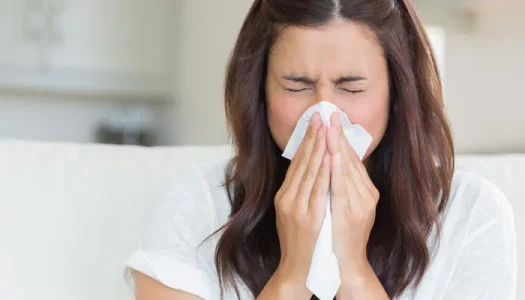Nose & Allergy

Nose & Allergy
Our nose is a very sensitive organ, prone to infections and diseases. One of the most common issues we all face with respect to the nose, is allergies. Allergies are our body’s natural reaction to irritants in the environment.
Our nose is also especially sensitive to changes within and outside the body. Other than allergies, our nose could also be susceptible to nosebleeds and nasal polyps.
Nosebleeds occur when the tissues of the nose’s inner lining is dry, exposing the underlying blood vessels which can bleed easily. Nosebleeds need to be evaluated and treated if they are happening too often and especially in young children where bleeding can be alarming to a child. Nasal polyps are small growths that occur inside the nose which need long term treatment to control and monitor their proliferation.
No matter the condition or disorder, Aurion ENT & Hearing Centre is determined to provide you with the attention and medical care you need.
ALLERGIC RHINITIS
Commonly known as Hay Fever in temperate countries, is a condition in which allergens such as pollen, dust mites, mold and even certain foods cause nasal, eye and skin symptoms. Allergic Rhinitis is very common in Singapore and there is often a familial/ hereditary component to it. Patients with allergic rhinitis often concurrently have sensitive airways (asthma), sensitive eyes ( allergic conjunctivitis), and sensitive skin ( eczema).
Allergic rhinitis is often characterised by the following symptoms:
- Running nose
- Blocked nose
- Sneezing
- Watery and itchy eyes
- Allergic shiners (dark undereye circles)
- Frequent throat clearing
DIAGNOSIS
Allergic rhinitis is diagnosed by nasoendoscopic examination followed by an allergy test to determine what type of allergens you are allergic to. Allergens can range from aeroallergens to food allergens. Allergen testing can also be customized to suit the patient’s needs and history.
Allergy Testing
There are a few types of Allergy Tests which can be carried out. These are:
- Skin prick/scratch test: the skin is pricked with a few common allergens and the results on the skin are studied to determine the positive and negative irritants.
- Intradermal skin test: if the prick test is inconclusive, an intradermal test is done which entails pricking allergens into the epidermis of the skin.
- Patch test: this method entails attaching a patch to the skin that contains a specific allergen, after which its effects are studied.
- Blood (IgE) test: this test entails sending a blood sample to the lab to see your body’s reactivity to certain antigens via the your blood immunoglobulin levels.
TREATMENT
Allergic rhinitis is treated based on age and severity.
Treatment in children is different from treatment in adults.
The mainstay of treatment consists:
- Identifying allergen triggers and avoiding them
- Pharmacotherapy
- Corticosteroid nasal sprays: these sprays are specifically designed to relieve inflammation, reduce nasal mucosal edema, and reduce production of nasal secretions.
- Oral or topical antihistamines: these provide quick relief for allergic symptoms
- Oral or topical decongestants: these alleviate nasal congestion quickly but should not be used longterm.
- Oral Leukotriene Receptor Antagonists ( eg Montelukast) : Used to treat the symptoms of seasonal allergic and perennial allergic rhinitis from 2 years old till adult.
- Immunotherapy
- For cases of allergic rhinitis which are refractory to allergen avoidance and are already on high doses of pharmacotherapy, immunotherapy may be the next step for you.
- It comes in 3 forms oral tablet, sublingual immunotherapy or subcutaneous immunotherapy.
- Immunotherapy needs a prior allergy test to determine if the agents you are allergic to are suitable for immunotherapy.
- In general, patients who are started on immunotherapy must be prepared to be compliant with treatment for 3- 5 years.
PREVENTION
Allergic rhinitis cannot be prevented as there is a strong hereditary component to it. However, you may inculcate the following steps into your daily life in order to control the allergy and reduce the effects of the symptoms:
- Avoid touching your face and rubbing your eyes/nose
- Wash your hands immediately after playing with pets
- Do not allow pets to come in contact with your bed linen.
- Wear hats and sunglasses to protect the eyes from pollen and other allergens
- Use anti-dustmite covers for pillows and mattresses



